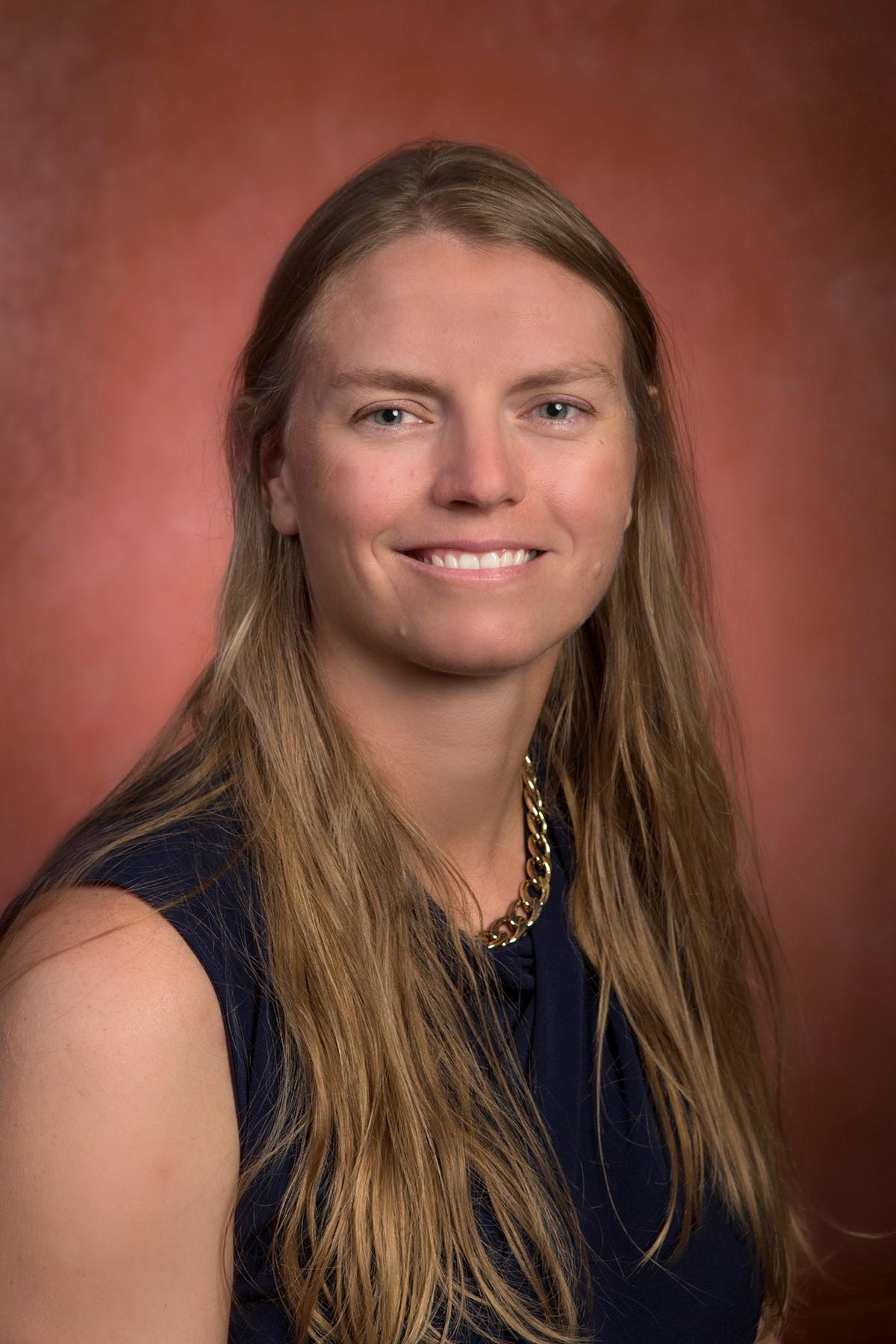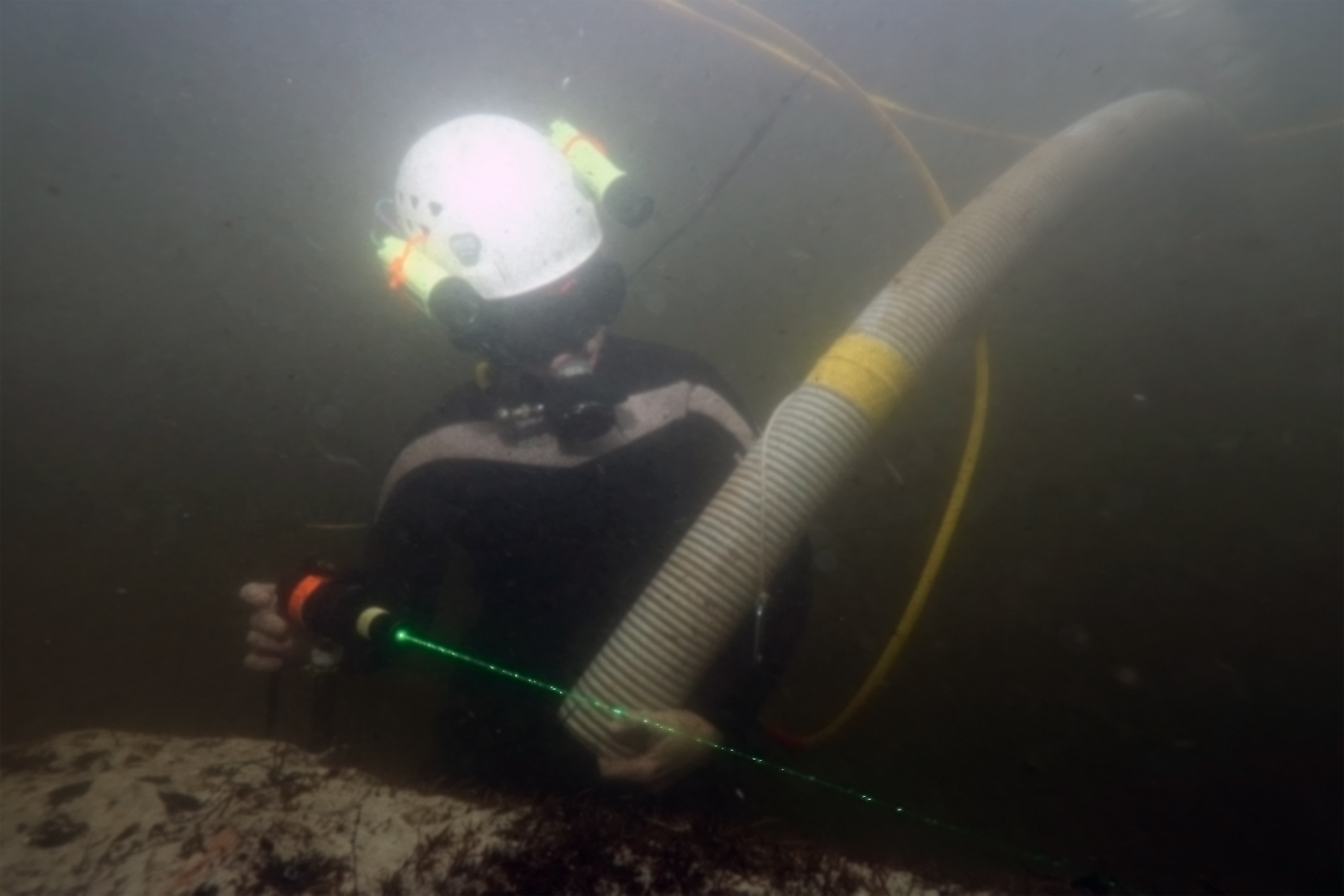Faculty Spotlight: Jessi Halligan, Assistant Professor of Anthropology
Jessi Halligan is an assistant professor in the Department of Anthropology, part of Florida State University’s College of Arts and Sciences.

Tell us a little about your background.
I was born and raised in South Dakota on a cattle ranch that my parents and grandparents owned and ran. I grew up about 20 miles away from the nearest town (which had approximately 80 residents), and about 5 miles from our nearest neighbors. This meant that my whole family spent a lot of time working together outside, which, in retrospect, ended up having a huge influence on my life in myriad ways.
When did you first become interested in geoarchaeology and underwater archaeology?
When I was in the fifth grade, my social studies book contained an excerpt that described Howard Carter discovering and opening King Tutankhamun’s tomb. Something about the sense of wonder in that passage struck me like a lightning bolt, and I knew that I was going to be an archaeologist someday.
Throughout high school, I took every opportunity I could find to volunteer on archaeological excavations, and archaeology was all I hoped: working outside, but still using my brain to attempt to answer complex questions about humanity, all while searching for the next discovery.
I became interested in geoarchaeology, which is using geological methods to interpret archaeological sites, and underwater archaeology, which is self-explanatory, during my archaeological field school in college. We were excavating a site that was actively eroding into the ocean on the coast of Massachusetts, losing several meters a year to winter storms and sea-level rise. I began to think about how these long- and short-term geological processes strongly influenced what we could ever hope to know about people in the past, and I guess I have never really stopped thinking about this.
What are your current research interests, and what makes you passionate about them?
I now am investigating the lifeways of the first Floridians, known to archaeologists as Paleoindians, who arrived in this area sometime before 14,550 years ago. I am interested in knowing where they came from; when they arrived, both in the Americas as a whole and on the Floridian peninsula more specifically; and, most importantly, how they lived and adapted to the major environmental changes they faced during their lifetimes.
I conduct this research in Florida — specifically, in the Aucilla River, about an hour away from Tallahassee — because inundated landscapes in Florida contain some of the most well-preserved evidence for these early people in the New World. During the end of the last ice age, from about 21,000 to 5,500 years ago, sea levels rose by approximately 130 meters (or almost 430 feet) due to glacier melt and other geological factors. The Florida peninsula was nearly twice as big as it is now, and much of that landscape was available for the first Floridians.
As sea levels rose, many of the sites created by the Paleoindians were drowned and likely destroyed by waves, wind and currents. However, in isolated sinkholes in the bottom of many freshwater rivers in this state, there are intact artifacts and sites providing tantalizing hints about how these first people lived on this rapidly changing landscape. I am passionate about this topic because (I think, though I might be biased) it is impossible not to be. There is so little that we know about these first people, and so much that we can learn through these sites, that it is a very exciting time to be an underwater archaeologist.
What do you want the public to know about your research? Why is your topic important?
There are many things I would like people to know about what I do, but I think the most important thing about my research is that it has helped to demonstrate that people on the Florida peninsula were here at least 1,000 years earlier than we originally thought, and that they were very clever about utilizing their available resources.
Because the underwater sites in Florida can be so well preserved, we are able to learn more about the first Floridians than we have been able to learn about early people in most of the rest of the Americas. Therefore, I would like people in Florida especially to be aware of the uniqueness and richness of the archaeological record here in Florida. If these sites are destroyed, this information is lost forever to all Americans.
I think my topic is important because it helps us understand more about how people were living in a world that was rapidly changing. (Sometimes sea-level rise would have been observable over the course of a single year, many plant species were changing where and how they lived, water tables were rapidly adjusting, and more than 35 genera of animals went extinct during this period.) We do not know much about how these first people adapted to these dramatic changes, but we know that they did, at least in many cases.
Who are your role models? Who has influenced you most in your life?
I have always looked up to my parents and grandparents, linking to the first question above. They taught me so much about working hard and achieving my goals. They also taught me resilience. Ranching has always been a challenging way to make a living, but while I was growing up, there were several notable events, including storms, droughts and constant equipment breakdowns. Throughout all these potential catastrophes, I saw them redirect, repair and rework our available resources to keep us afloat.
I also learned from them that even when you think you are at the end of your endurance, there is still more to give. This has helped me hundreds of times, both physically and mentally.
What brought you to Florida State University? Why do you enjoy working at FSU?
I came to FSU to join our recently revived Anthropology program for a number of reasons. One of the main reasons is that my research area is within an hour of campus, so I am able to mix fieldwork with my teaching on a regular basis. However, I was more than honored to join a program long esteemed in the field for its training of Southeastern archaeologists. I love the opportunity to work with students from all over the Southeast who are interested in learning about our earliest history.
What is your favorite part of your job?
I love almost every part of my job. Fieldwork is exciting and challenging. Lab work can be tedious, but it is where we make many of our most important discoveries. Teaching allows me to discuss those discoveries and those made by my colleagues worldwide. In short, I have the best job a person can hope to get!
What is the most challenging part of your job?
Nearly everything about underwater archaeology is somewhat challenging. The logistics of getting equipment and people into the water and back out of it safely are time-consuming and expensive, and since I work in the swamps of the Aucilla River, merely accessing our sites can be impossible at certain times of the year. Weather, bugs, snakes, gators and dark water all add to our complications.
How do you like to spend your free time?
I mostly spend my free time doing more fieldwork, especially volunteering to help other people with their excavations, or during the semester, I will catch up on my reading. However, “free time” is something of an illusion, as there is always more research and writing to be doing.
If your students only learned one thing from you (of course, hopefully they learn much more than that), what would you hope it to be?
I would like my students to learn not only that we have much to learn from people in the past (and hopefully some of those details about what we have learned from those past people), but also that we are incredibly privileged to be able to study these past people, and that it is a grave responsibility to get the story as right as we can as well as a lot of fun.


